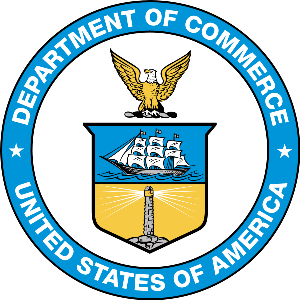 In advance of a public meeting scheduled for December 12 in Washington D.C., the U.S. Department of Commerce is seeking public comment from all interested stakeholders on the issue of first sale doctrine and digital files, including ebooks.
In advance of a public meeting scheduled for December 12 in Washington D.C., the U.S. Department of Commerce is seeking public comment from all interested stakeholders on the issue of first sale doctrine and digital files, including ebooks.
The agency, along with the U.S. Patent and Trademark Office and the National Telecommunications and Information Administration, will be considering “the legal framework for the creation of remixes; the relevance and scope of the first sale doctrine in the digital environment; the appropriate calibration of statutory damages in the contexts of individual file sharers and of secondary liability for large-scale infringement; whether and how the government can facilitate the further development of a robust online licensing environment; and establishing a multi-stakeholder dialogue on improving the operation of the notice and takedown system for removing infringing content from the Internet under the Digital Millennium Copyright Act (DMCA),” according to the notice published in the Federal Register.
Mary Minow, Follett Chair of the Graduate School of Library and Information Science, Dominican University, and executive editor of Stanford University’s Copyright & Fair Use website, encouraged librarians to contribute their voices to this important issue. Although the case did not involve digital content, the Supreme Court’s Kirtsaeng v. Wiley decision in March, “has reawakened interest, on the content owners’ side, to revise first sale,” Minow told LJ. “Perhaps that’s even part of the impetus behind this call for public comment. The energy is there to revise copyright law in its entirety, including first sale. If libraries aren’t speaking up about what it is that we need, we’re just going to be bulldozed over.”
First sale is a relatively straightforward legal doctrine when applied to print materials or physical media such as CDs or DVDs. U.S. copyright law gives rights holders exclusive permissions to distribute copies of their work. First sale makes a distinction between the work and the material object containing that work, and states that nothing in the law should be interpreted as forbidding or restricting the transfer of a lawfully obtained, copyrighted object. So, once a person buys a print book or DVD boxed set, the book or DVDs are theirs to do with as they see fit. In theory, without this exception, people would have to ask for a publisher’s permission to resell a college textbook or even to give a book as a gift. In order to lend books, U.S. libraries would potentially have to compensate copyright holders each time a print book circulated, such as under a public lending rights system, which is the norm in more than two dozen countries outside the United States.
Yet first sale doctrine does not give permission for someone to copy a work in its entirety and transfer it to another party. Neither does fair use doctrine. And many types of digital files—including ebooks, MP3 files, and software—can’t be transferred, loaned, or otherwise used without making copies of files. With first sale poorly equipped to help interpret the transfer of digital content, digital first sale has emerged as a legal battleground between publishers and resellers, with publishers generally arguing that the ease of copying and transferring digital files makes rights holders especially vulnerable to piracy. In one prominent case this spring, U.S. District Judge Richard Sullivan ruled that online startup ReDigi was not authorized to host a platform that allowed users to buy and sell used MP3 files originally purchased from the Apple iTunes store, even if the seller’s copy of the file was deleted during the transaction.
Meanwhile, the lack of first sale protection is one of the primary reasons that publishers now make most software and other digital content available only through licensing arrangements, including licensing arrangements that permit Amazon to delete ebooks from users’ Kindles, or arrangements that restrict libraries to a lending cap for many ebook titles.
The Department of Commerce encourages librarians and other interested parties to file comments electronically by email to: CopyrightComments2013@uspto.gov before the November 13 deadline.


